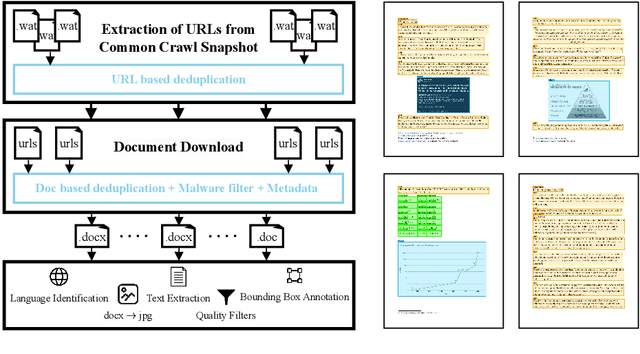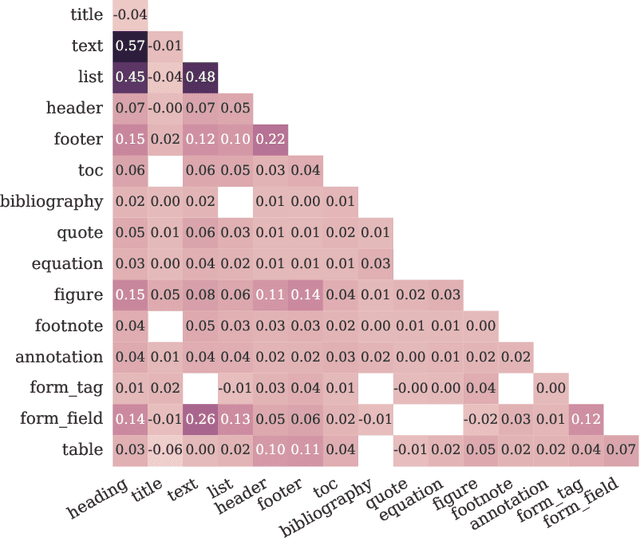Anton Alexandrov
BgGPT 1.0: Extending English-centric LLMs to other languages
Dec 14, 2024Abstract:We present BgGPT-Gemma-2-27B-Instruct and BgGPT-Gemma-2-9B-Instruct: continually pretrained and fine-tuned versions of Google's Gemma-2 models, specifically optimized for Bulgarian language understanding and generation. Leveraging Gemma-2's multilingual capabilities and over 100 billion tokens of Bulgarian and English text data, our models demonstrate strong performance in Bulgarian language tasks, setting a new standard for language-specific AI models. Our approach maintains the robust capabilities of the original Gemma-2 models, ensuring that the English language performance remains intact. To preserve the base model capabilities, we incorporate continual learning strategies based on recent Branch-and-Merge techniques as well as thorough curation and selection of training data. We provide detailed insights into our methodology, including the release of model weights with a commercial-friendly license, enabling broader adoption by researchers, companies, and hobbyists. Further, we establish a comprehensive set of benchmarks based on non-public educational data sources to evaluate models on Bulgarian language tasks as well as safety and chat capabilities. Our findings demonstrate the effectiveness of fine-tuning state-of-the-art models like Gemma 2 to enhance language-specific AI applications while maintaining cross-lingual capabilities.
RedPajama: an Open Dataset for Training Large Language Models
Nov 19, 2024Abstract:Large language models are increasingly becoming a cornerstone technology in artificial intelligence, the sciences, and society as a whole, yet the optimal strategies for dataset composition and filtering remain largely elusive. Many of the top-performing models lack transparency in their dataset curation and model development processes, posing an obstacle to the development of fully open language models. In this paper, we identify three core data-related challenges that must be addressed to advance open-source language models. These include (1) transparency in model development, including the data curation process, (2) access to large quantities of high-quality data, and (3) availability of artifacts and metadata for dataset curation and analysis. To address these challenges, we release RedPajama-V1, an open reproduction of the LLaMA training dataset. In addition, we release RedPajama-V2, a massive web-only dataset consisting of raw, unfiltered text data together with quality signals and metadata. Together, the RedPajama datasets comprise over 100 trillion tokens spanning multiple domains and with their quality signals facilitate the filtering of data, aiming to inspire the development of numerous new datasets. To date, these datasets have already been used in the training of strong language models used in production, such as Snowflake Arctic, Salesforce's XGen and AI2's OLMo. To provide insight into the quality of RedPajama, we present a series of analyses and ablation studies with decoder-only language models with up to 1.6B parameters. Our findings demonstrate how quality signals for web data can be effectively leveraged to curate high-quality subsets of the dataset, underscoring the potential of RedPajama to advance the development of transparent and high-performing language models at scale.
WordScape: a Pipeline to extract multilingual, visually rich Documents with Layout Annotations from Web Crawl Data
Dec 15, 2023



Abstract:We introduce WordScape, a novel pipeline for the creation of cross-disciplinary, multilingual corpora comprising millions of pages with annotations for document layout detection. Relating visual and textual items on document pages has gained further significance with the advent of multimodal models. Various approaches proved effective for visual question answering or layout segmentation. However, the interplay of text, tables, and visuals remains challenging for a variety of document understanding tasks. In particular, many models fail to generalize well to diverse domains and new languages due to insufficient availability of training data. WordScape addresses these limitations. Our automatic annotation pipeline parses the Open XML structure of Word documents obtained from the web, jointly providing layout-annotated document images and their textual representations. In turn, WordScape offers unique properties as it (1) leverages the ubiquity of the Word file format on the internet, (2) is readily accessible through the Common Crawl web corpus, (3) is adaptive to domain-specific documents, and (4) offers culturally and linguistically diverse document pages with natural semantic structure and high-quality text. Together with the pipeline, we will additionally release 9.5M urls to word documents which can be processed using WordScape to create a dataset of over 40M pages. Finally, we investigate the quality of text and layout annotations extracted by WordScape, assess the impact on document understanding benchmarks, and demonstrate that manual labeling costs can be substantially reduced.
 Add to Chrome
Add to Chrome Add to Firefox
Add to Firefox Add to Edge
Add to Edge